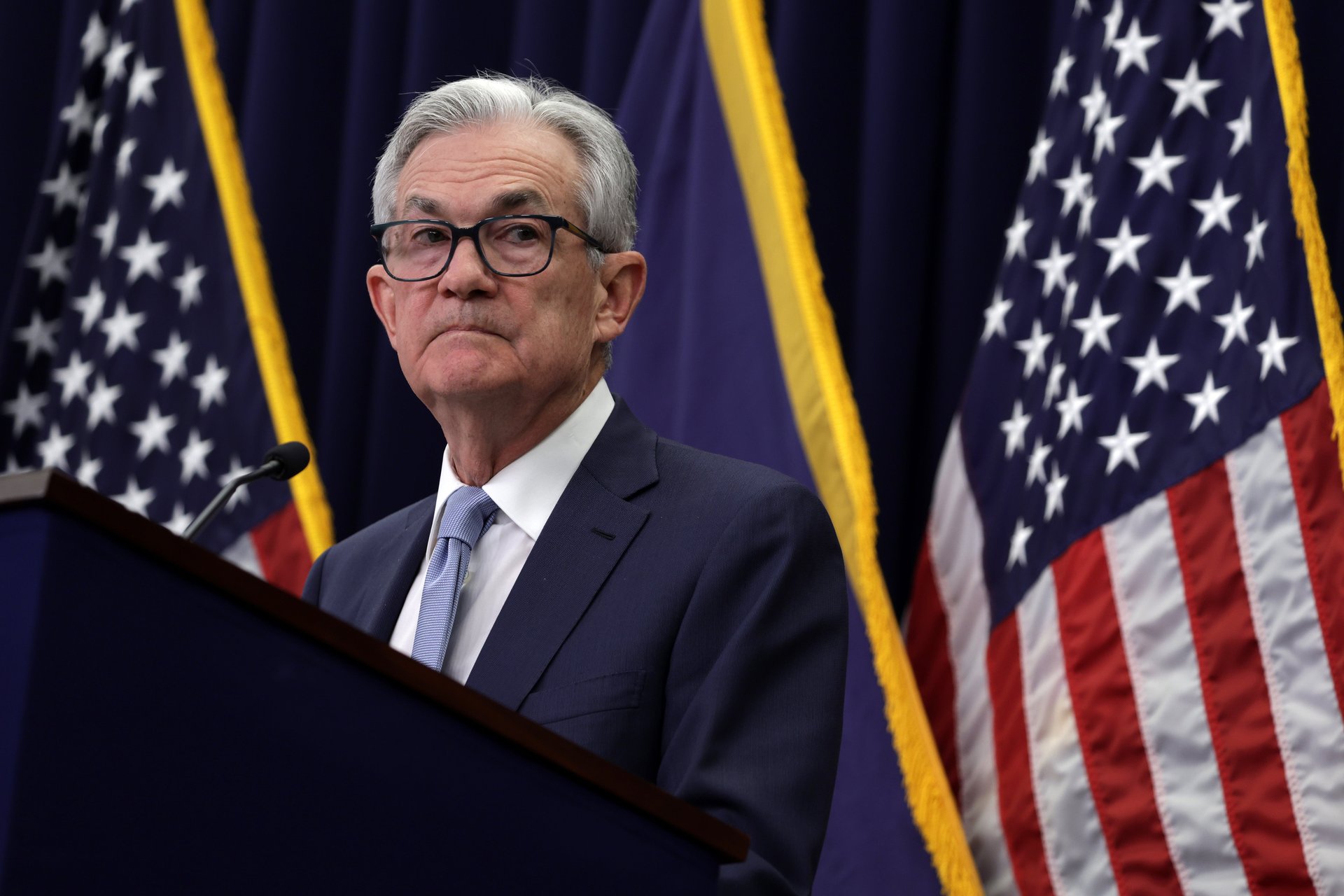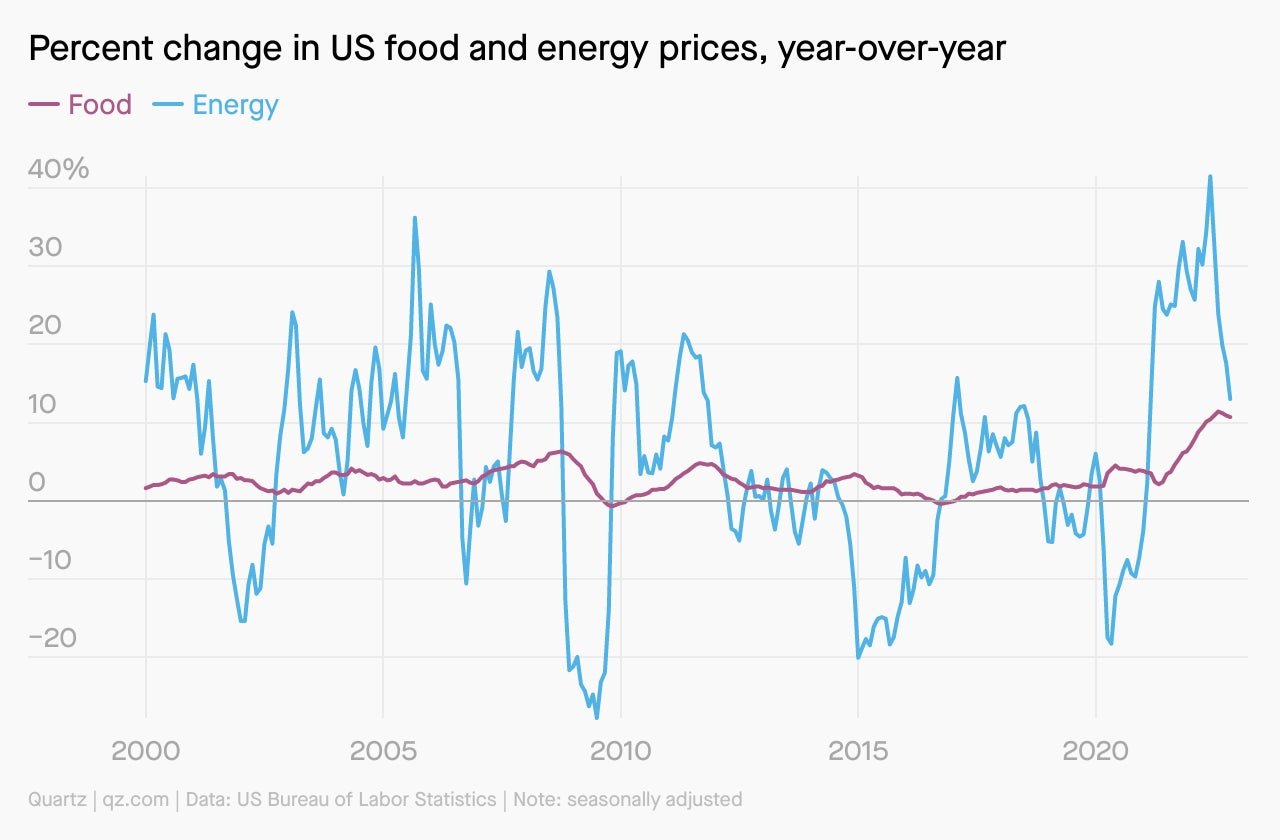🌎 More hikes to come
Plus: China’s new covid motto sounds a lot like the US

Good morning, Quartz readers!
Here’s what you need to know
The US Federal Reserve raised interest rates to their highest level in 15 years. The central bank signaled that this latest hike isn’t its last.
Elon Musk changed his mind on selling Tesla shares and suspending Twitter accounts. The CEO sold $3.6 billion worth of Tesla shares as investors fear he is too focused on Twitter. Meanwhile, the platform has suspended an account that tracked Musk’s private jet, despite previous assurances that it’d be left alone.
US stock brokerage rules are getting an overhaul. The Securities and Exchange Commission passed and opened for public comment a series of proposals that would change stock market rules.
US senators voted to ban TikTok from government phones. The bill, which has yet to pass the House, shows renewed legislative focus on the app’s potential threat to national security.
Eight social media influencers were charged in a $100 million fraud scheme. They allegedly profited from promoting certain stocks to their followers.
Iran was removed from the UN women’s rights body. A US-drafted motion was passed calling for the country to be expelled amid its deadly crackdown on gender equality protests.
Peru has entered a 30-day state of emergency. The order suspends the right to gather and travel across the country in a bid to quell protests following the arrest of former president Pedro Castillo.
What to watch for
The Tienditas bridge, a key thruway connecting Colombia and Venezuela, opens today (Dec. 15) in a demonstration of improving relations between the two South American countries. While construction was completed in 2016, the bridge was never opened due to deteriorating relations between Caracas and Bogotá.
The bridge opening is in line with a series of recent steps Venezuelan president Nicolás Maduro has taken to normalize diplomatic relations with countries throughout the Americas, most notably the US. Last month, the US allowed Chevron to resume exporting Venezuelan crude oil after the Maduro government agreed to talks with opposition leader Juan Guaidó on holding free and fair elections.
While political and economic challenges weigh heavily on the embattled Venezuelan president, it’s key for Maduro to find friends abroad, especially with his neighbor to the east. As negotiations with the opposition government continue in Mexico, expect more reforms from Caracas.
China’s new covid motto sounds a lot like the US
A new slogan crystallizes Beijing’s complete U-turn on its pandemic strategy: “Be the first person responsible for your own health.”
It’s a far cry from Beijing’s declaration of a “people’s war” against covid, launched with zeal in the early days of the pandemic. Back then, state officials hailed the all-out response to the coronavirus as a vindication of China’s strong “collectivist spirit.” Now, amid an easing of restrictions and surging infections, and as the country’s health authorities stop tracking asymptomatic covid cases, China is telling citizens they’re on their own.
There is an irony here that Beijing will likely play down: The individualistic approach to covid is one that the US has taken, with an emphasis on personal responsibility over population-wide policy. But while Beijing’s new pandemic mantra may give authorities cover as infections rip through the country, it’s unlikely individual onus will mean more personal liberties.
Consumers, not inflation, are behind high US food prices
While people have been quick to point fingers at inflation for increasing food prices, changes in consumer behavior—like splurging at the grocery store as opposed to restaurants during the height of the pandemic—likely had a much bigger impact.

Food prices, similar to energy prices, are excluded from measures of core inflation because they are highly influenced by supply shocks. But over the past two decades, food prices have been less volatile than energy and agricultural commodity prices—suggesting that the pass-through from changes in commodity prices to overall food price inflation may be limited.
✦ Love stories like these? Becoming a Quartz member helps keep our content free and accessible to all. Grab a membership today at 50% off our usual price.
Quartz’s most popular
🧐 Jack Dorsey doesn’t think Musk’s Twitter Files fulfill a promise of transparency
Surprising discoveries
The snake clitoris was located. The reptile is one of at least nine species that have not just one of the sex organ, but two.
A medieval woman’s burial site was unearthed in England. The presumed VIP was laid to rest with a very fancy necklace.
Twitter’s office furniture is headed to the auction block. A giant “@” sculpture filled with succulents starts at just $25.
A plan has been hatched to avoid culling male chicks. Gene-editing could ensure that hens only lay eggs with female chicks.
Defogging glasses has been demystified. A nanocoating of gold may well do the trick.
Our best wishes for a productive day. Send any news, comments, Twitter desks, and gold-tinted glasses to [email protected]. Reader support makes Quartz available to all—become a member. Today’s Daily Brief was brought to you by Michelle Cheng, Mary Hui, Sofia Lotto Persio, Diego Lasarte, Julia Malleck, and Morgan Haefner.